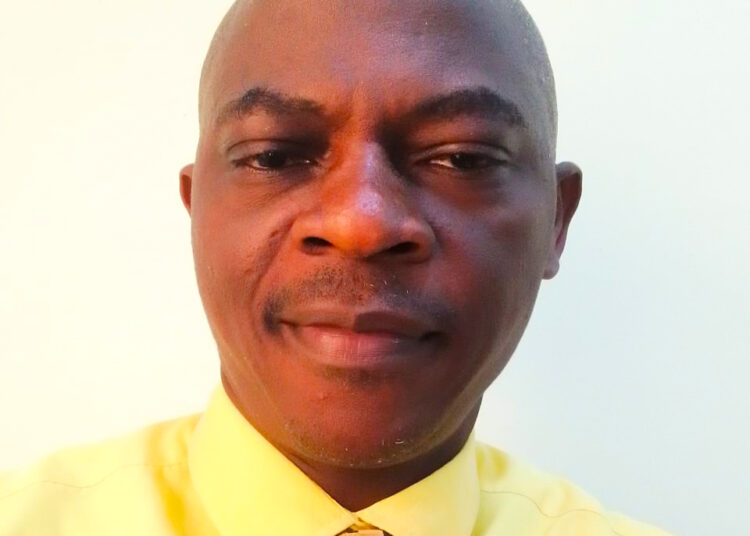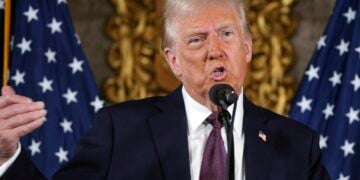The telecoms sector in Nigeria is viewed by some as a model of regulatory excellence. Other African countries often visit Nigeria to study the sector, aiming to understand the regulatory framework established by the NCC. This regulatory excellence is evident in the growth and success of the telecoms industry, which currently contributes over 16% to Nigeria’s GDP. The telecoms industry in Nigeria is a source of pride for everyone; it’s arguably the only sector that can be considered a successful model of liberalization in the country.
Amidst all the successes, the industry is still faced with multiple challenges, including multiple taxation, vandalisation, and changing macro realities. Noteworthy of mention is efforts by the NCC under the new Executive Vice Chairman, Dr Maida to further reposition the industry. Whilst the focus in the past has always been quality of service (QoS) the direction under the new EVC has shifted to quality of experience (QoE) which is more customer-centric and places more demands on the telecoms operators.
The EVC has continued to emphasize this at various engagements with stakeholders in the industry. Beyond advocacy, the visible steps taken so far by NCC under Dr Maida aimed at safeguarding telecom infrastructure deserve commendation. The recent incident of multiple fibre cut, which resulted in widespread network disruptions for one of the major telecoms operators, prompted swift action from the EVC. His advocacy for stricter penalties against perpetrators led to moves by the government to criminalize cable damages and vandalisation of telecoms infrastructure. This proactive stance not only deters future recklessness but also instils confidence among telecoms operators regarding the safety of their investments. However, the long-term viability of the industry hinges on a multifaceted approach that will include protection of telecoms infrastructure, which the NCC is currently spearheading, and sustainable pricing mechanism.
The Nigerian economy is currently grappling with new economic realities that continue to threaten its stability. These realities are not unique to Nigeria but rather a global phenomenon affecting countries around the world. A complex set of factors are exerting considerable pressure on the global economy and causing a slowdown in global growth. This is occurring alongside a marked increase in inflation. As a result, businesses are confronted with a range of challenges including rising costs of capital, a tight labour market, and geopolitical risks. These challenges have been worsened by disruptions due to the COVID-19 pandemic, the war in Ukraine, Israel, and the tensions between the US and China. Many countries are revisiting their policies and implementing new strategies to navigate the turbulent waters.
In Nigeria, the struggle to strengthen the value of the naira to the dollar has continued to gallop as the Central Bank of Nigeria (CBN) continues to pursue new approaches to address the situation. However, challenges such as infrastructural deficit and security concerns continue to persist, further exacerbating the issue. Yet, Nigeria continues to face a significant rise in food prices over the past few years, worsened by the removal of subsidies on petrol, amongst other things. This has resulted in a weakened purchasing power for many citizens with attendant effects on businesses.
In recent times, Nigeria’s naira has tumbled across both official and unofficial markets due to increased forex demand, causing a significant spike in prices of goods and services across the country. The National Bureau of Statistics (NBS) reported that items contributing to the inflation’s headline index on a year-on-year basis are food and non-alcoholic beverages (16.42%), housing, water, electricity, gas and other fuel (5.30%), clothing and footwear (2.24%), and transport (2.06%). The NBS explained that the rise in food inflation on a month-on-month basis is due to an increase in the average prices of bread and cereals, potatoes, yams, and other tubers, fish, coffee, tea, and cocoa.
These developments paint a bleak picture of the current economic situation in Nigeria and amid all these, discourse around telecoms tariff review is beginning to take centre stage, drawing attention to the need for a delicate balance between economic realities, quality of experience, which impacts directly on customer satisfaction, and telecommunications industry sustainability. For over a decade, major telecom operators like Airtel, MTN, and GLO have maintained their pricing structures, despite mounting challenges such as currency devaluation and inflation while other sectors have adjusted prices to cope with economic fluctuations.
For instance, entertainment giant, DStv, has increased its prices more than two times in the past year. Netflix has also reviewed its prices. Nigerian Breweries have also adjusted their prices to reflect the current realities, but telecom operators have maintained their pricing despite economic fluctuations, grappling with a devalued currency and rising operational costs.
In Nigeria’s telecommunications sector, diesel consumption is a critical factor influencing service reliability and progression. With numerous sites dispersed across the nation, a substantial portion operates on generators 24/7, necessitating continuous fuel supply. This escalating cost of diesel not only directly impacts operational expenses but also cascades into broader challenges such as site accessibility and infrastructural maintenance. As prices soar across various sectors, the telecom industry continues to grapple with the dilemma of maintaining quality services while operating within constrained pricing frameworks.
The prevailing reality suggests that the long-term viability of the telecoms sector now hinges on striking a delicate balance between affordability and quality of experience for consumers on the one hand, and profitability and survival for operators on the other hand.
Quality of experience stands at the forefront of consumer expectations in the telecom sector. However, the telecoms operators must continue to invest to maintain superior quality of experience. In the same vein, continuous and increased investment is a function of profitability. The telcos can only invest from their profits. There can be no investment without profitability. One way to gurantee profitability and sustainability of the industry is a review of the existing pricing structure.
Pricing autonomy is a linchpin for industry sustainability. The ability to set cost-reflective tariffs is indispensable for ensuring adequate returns on investment and fostering long-term viability. Telecom operators require a more transparent and collaborative approach to tariff adjustments, emphasizing the importance of a pricing framework aligned with operational realities. The current pricing window, sanctioned by regulators, is a foundation, but the industry needs greater flexibility to navigate cost fluctuations while ensuring service quality and accessibility remain uncompromised.
The clamour for cost-reflective tariffs is not merely about short-term gains but a strategic imperative to sustain the sector’s growth trajectory. The transition from 2G to 5G and with 6G on the way symbolizes the industry’s evolution, made possible by substantial investments that fuel innovation and expand service capabilities. However, without conducive regulatory frameworks that incentivize investment, the industry risks stagnation, jeopardizing future advancements and undermining service availability.
The telecommunications industry in Nigeria is currently at a crossroads where infrastructural challenges, pricing dynamics, and regulatory frameworks intersect, offering a unique opportunity for swift and collective action. A thriving and resilient telecommunications ecosystem has the potential to empower individuals, drive economic growth and enrich lives across the nation of Nigeria. Whilst the industry regulator has delivered commendably, prevailing realities demand a new approach to ensure continued viability of the sector.
Dr. Adesola is a Senior Lecturer and former HOD, Computer and Information Sciences Department, Trinity University.





